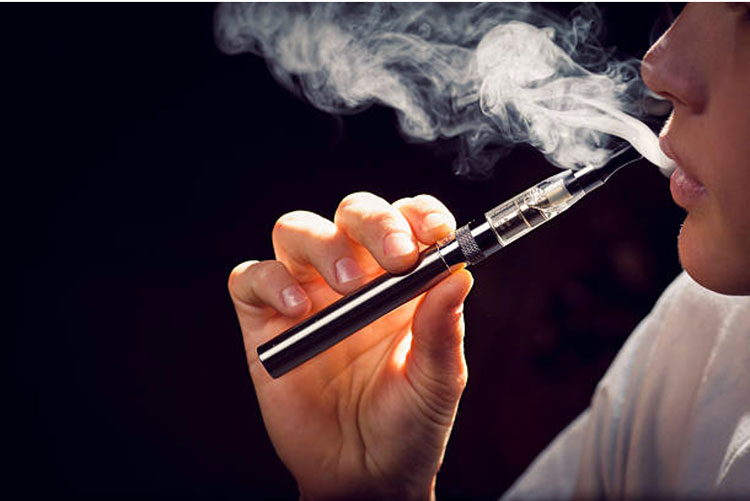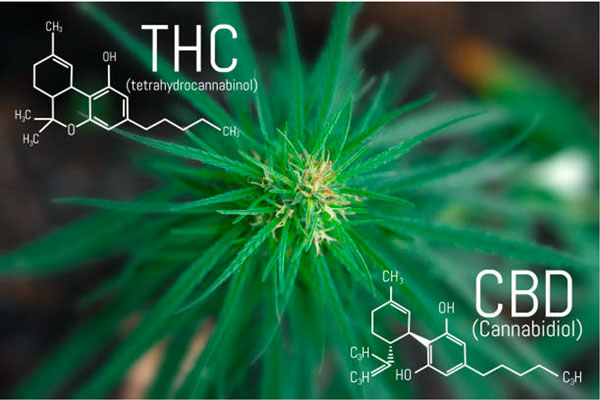Modern times ushered a new age of cannabis into our community, and it all started when CBD became legalized in 2018’s Farm Bill. This bill’s passing (check it out) has opened many opportunities for researchers and companies alike to expand their studies and businesses in the name of this compound. Ever since then, there have been discoveries that tie CBD with tumor growth reduction and even new forms such as balms, lotions, and chapsticks.
A form that boomed in recent years was adopted in the community, and this was vaping. This form of taking Cannabidiol became famous for younger users. However, a lot needs to be said about what goes into our bodies and what we allow. It has been a controversy in the community for decades now, but because of the rising of the digital age, will we be able to accept it into the community without malice? Does THC have a place in vaping CBD?
Defining CBD and THC
Both THC and CBD are known phytocannabinoids present in cannabis. Often, the latter gets confused with the former, especially when someone isn’t familiar with either of them. However, to clear up any misconceptions you might have, we’ll differentiate Tetrahydrocannbinol from Cannabidiol, from its origins right down to its effects on the human body.
Cannabidiol can be known as the “better” twin of the two. It’s widely popular for doing everything its sister compound can do, and then some. What’s more impressive about this phytocannabinoid is its complete lack of adverse effects on the body. While Tetrahydrocannabinol affects the rational mind by causing psychoactive effects, CBD does not. It can counter dependence and addiction caused by marijuana (where THC thrives), heroin, LSD, and other Schedule 1 substances.
Cannabidiol can also become an alternative treatment to many diseases that have very reactive medications. For example, major depression makes use of SSRIs and MAOIs to counter their plummeting mood. However, these traditional medications also have severe side-effects, like a noticeable weight gain (link: https://pubmed.ncbi.nlm.nih.gov/10926053/), rebound depression, etc. This causes the users to quit taking their medication more often than not.
Cannabidiol does not have such side-effects on the body. In fact, studies show that CBD products, especially oil, have several benefits to the body due to the entourage effect it brings. This gets triggered when the carrier oil and the product itself bind together in the body and enhance the effects of Cannabidiol altogether. Since carrier oils like Hemp Seed Oil originate from the same plant, phytocannabinoids present together inside the body.
On the other hand, THC is infamously known as the compound that caused marijuana to be categorized in FDA’s schedule 1 drug and substances. This is mainly due to the controversy it has been swamped in about its psychoactive effects if used unwisely and without restraint. Many CBD companies have placed Tetrahydrocannabinol in their products. However, the FDA set a 0.3% margin to make sure it doesn’t cause the CBD product used to get high.
However, several Cannabidiol companies opt to remove THC altogether. Products like CBD vape juice, oils, edibles, and pre-rolls all give the body great benefits despite not triggering the entourage effect. It’s up to the customers if they prefer the compound in their Cannabidiol vape juice or not, but the great things heard about Cannabidiol doesn’t change.
How to know if your product has THC
There are three kinds of Cannabidiol products in the market, and depending on the company you choose, one or two might be absent from the options.
Full-spectrum CBD
Cannabidiol in this product doesn’t do all the work alone. This product contains all phytocannabinoids, and yes, it entails THC as well. However, THC content is extremely low here (below the 0.3% threshold), and couldn’t even try and fog up your senses, so you have nothing to worry about. The only reason Full-spectrum cannabidiol products include THC is to trigger the entourage effect we mentioned earlier.

Having the entourage effect means you’ll feel the more potent effects of the product, but not having it doesn’t mean you’ll have harmful effects with its counterparts. It only means the bioavailability becomes higher, the reaction rate of the product becomes shorter, and you’ll be having a great experience. Many customers prefer finding the Full-spectrum Cannabidiol if they manage their conditions better, like anxiety episodes or severe mood swings.
Broad spectrum CBD
This line of Cannabidiol products contains all phytocannabinoids except THC. Therefore, if you see any products that boast their 100% THC-free content but aren’t an isolate, it’s probably a broad spectrum. This is ideal for those opposed to THC and its effects, however small, but still wish to have a partially acquired entourage effect. Because other phytocannabinoids are present, the entourage effect, though relatively tamer, can still be achieved.
CBD isolates
These products hold the purest form of CBD. It contains Cannabidiol and other phytocannabinoids are present. There is no entourage going on in this formula. However, the amount of Cannabidiol makes up for its lack by having a bigger bioavailability and a more prolonged duration effect. It is widely popular for those living in a state where THC is illegal, and therefore do not want to have their drug test come back positive.
So, should you have THC in your CBD products?
Yes, you should, if only to experience a full-spectrum product. However, we do not condemn isolates or broad-spectrum CBD products. Even if we think you should have THC in your products, we still insist on either an isolate or a broad spectrum.
If you’re wondering why the only apparent reason would be safety. With Cannabidiol, you don’t have to worry about THC entering your system and taking the risk of its effects. You’re also safe from surprise drug tests.







